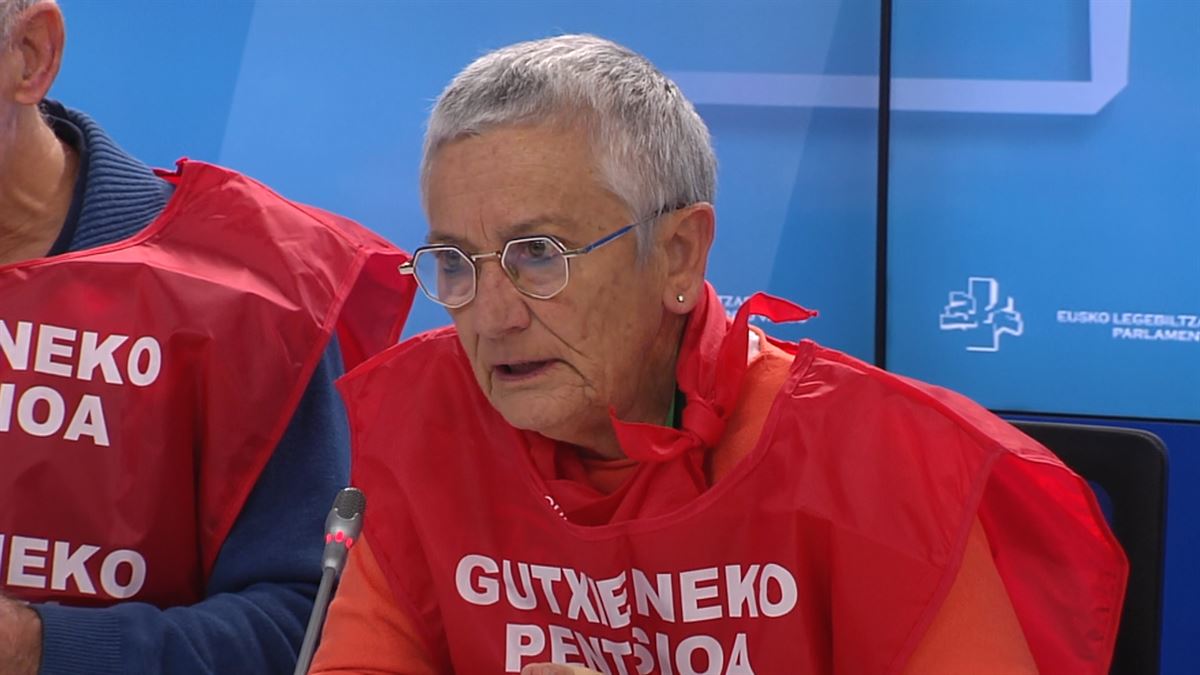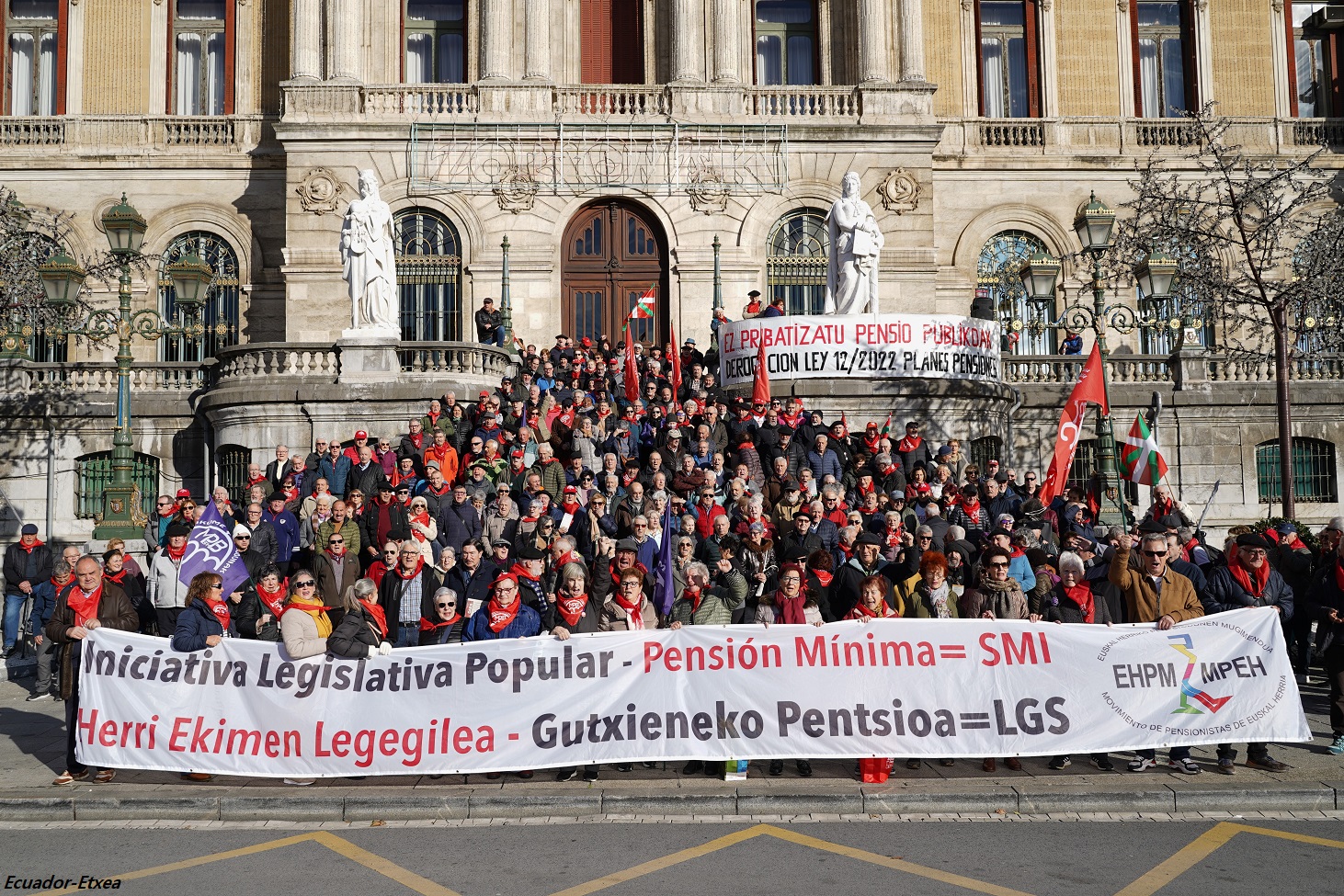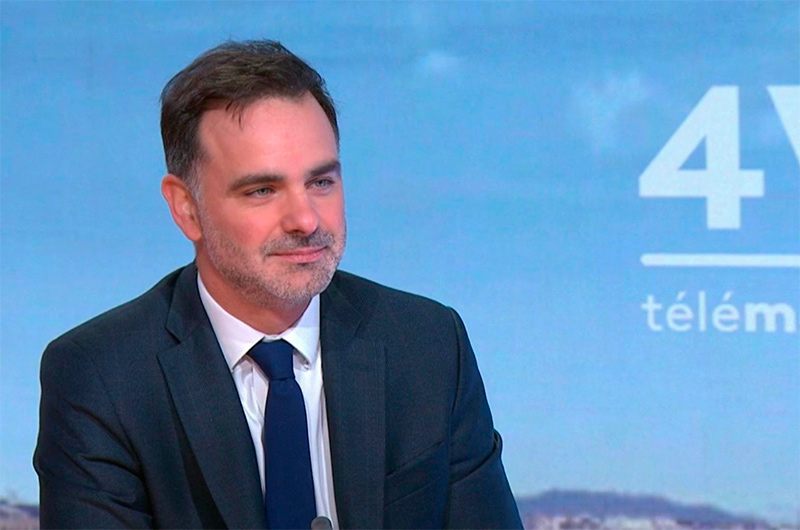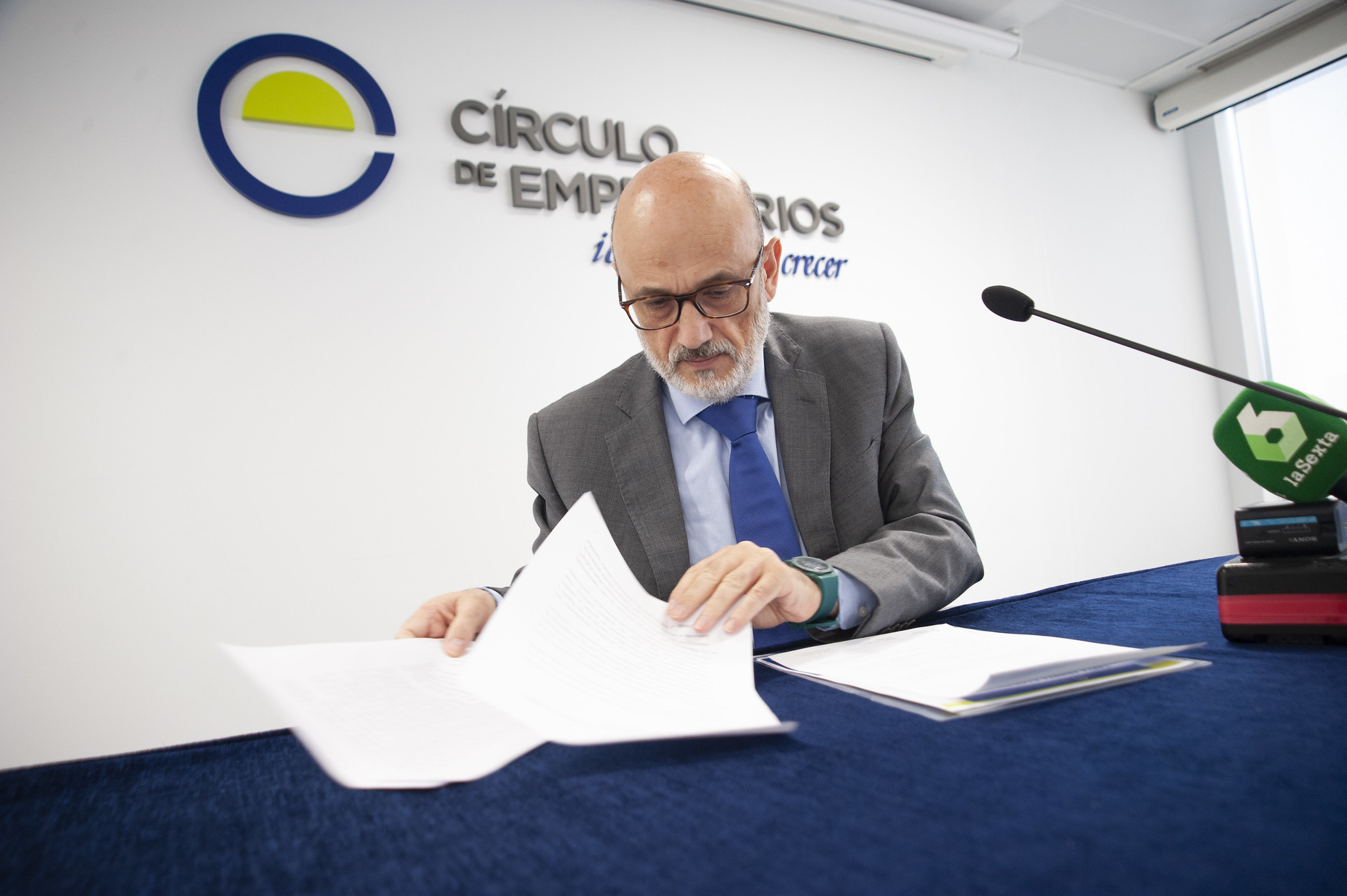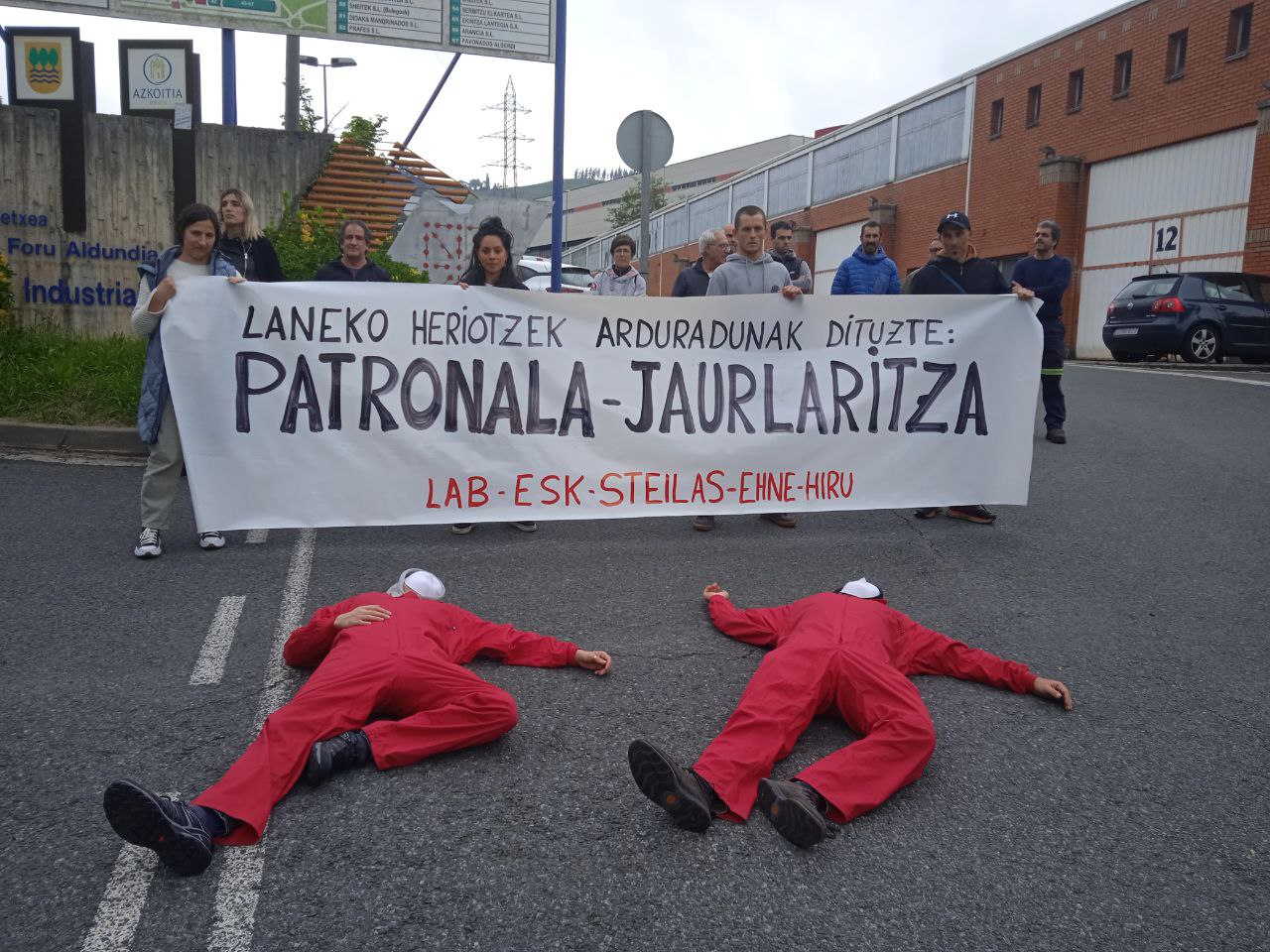"The struggle will be long, the movements must be organized in such a way that they are maintained"
- Jeronimo Prieto, a railway worker, has been on strike since 5 December in protest at the reform of the pension system proposed by the French Government. On Friday he resumed his work, voting by the majority in favour of a return to work and in favour of a strike on the days of the settlement of the inter-trade union. He's a member of the LAB trade union. Between the fight against pension reform and the general strike to be carried out in Hego Euskal Herria, there is a clear connection: "The debate is the same, the question is 'what kind of portraits, works and lives do we want?' We want decent portraits, work and life."

It is day 43 against the reform of the pension system. It's a lot of time. How are you?
It's complicated. It's day 43 on strike, so without pay, if that's his weight on his head. This morning (16 January) we decided, as elsewhere, to return to work tomorrow (17 January) and strike with the mobilizations of the inter-trade union movement. It is 22, 23 and 24 January. We have taken the decision to alleviate the situation a little, and what is clear is that we cannot continue to do so. We are still mobilised against the reform of the retes system. The struggle will be long, so we must organize for the movement to last. We have this exercise in the conception of that organization.
By shortening the strike to the days of mobilisation, do you expect more people to stick to the strike and therefore to speed up the blockade?
As far as rail workers are concerned, we do not know whether we are going to continue to be more. We hope that those who have mobilised will continue, but it must still be said that after 43 days the situation is difficult for some and that they will hardly follow it, whatever the type. We now have to bear in mind that the movement is going to be long and we will therefore have to follow. The workers of the railways and the RATP have been on strike since 5 December; now is the time to also link those of other sectors to the movement to collect the witness with us.
How is the strike movement going in the public and private sectors?
With regard to the private sector, the situation depends on the company. The labour market and the world have changed radically over the last twenty years and thus legislation as well. Today it is very difficult to strike in a small company. Next to you are big companies like Dassault, where there are opportunities to start a strike movement. There are also some unemployed in the education sector since 5 December, but they are not the majority. On the occasion of the mobilization on Friday, five SEASKA network centres have been convened and this is new. There are also discussions among them; there is talk of making a "black day" on January 24, that is, the funnel of schools and licking, going beyond SEASKA.
The movement is becoming immensely long.
That is true and some thought that some progress would be made earlier. We see that the French Government is committed to the extension. The position of CFDT has been cleared up, we are in a clearer picture, even though it is very hard, that is what clarifies the positions, which facilitates the development of the perspectives. On 23 January they will organise the tortxekila toilet initiative from the afternoon to the night (in several French towns they have started this type of mobilisation, adding up to the stormed night), which also allows the workers to be mobilized. Some media say that movement is reduced, but we know that support is there. People are against reform, so we have to invent new ways of fighting to activate those people.
What elements should these new forms of struggle form in order to be effective?
I see two important elements. On the one hand, they will have to represent the support of the people, we will have to be on the street. On the other hand, they will have to bind the economy, because government is tied to employers and finance, we know that we have to influence that. With regard to the government and the party of Macron LREM, the elections to be held in the American country in March will also be important.
In front of it, the government is deaf from the outset; it is being repeated that it is going to bring reform yes or no.
The Government wants to win that fight altogether. Although there have been some changes last weekend, for example as far as the age of balance is concerned, in general he told the workers’ and adult unions that if there is no agreement, the law will be passed by ordinance. Furthermore, the scope of trade union discussion is absolutely limited. At the height of this inclined posture, the movement must be fast.
The initial objective is to reverse the reform. Looking at the government's position, are you hopeful? Can the objective be achieved?
The point is that this structurally raised reform is very laborious, because it runs the risk of the social model that has been adopted so far being crumbling. On the part of the neoliberals, the way is being prepared to introduce privatisation. That is what is at stake with the reform of the Employment Act. Knowing that, it is no wonder that the reform unions are not in the opposition.
Can you specify this last point?
It seems that mutual societies, let us say, are becoming a private pension scheme. These unions already manage several funds in the current system. In particular CFDT. Once the reform is over, the possibility of extending the private sector will increase and some trade unions will be interested in it. Getting into this game is very laborious, because it's a big structural change.
In the current toilet system there are points to be improved. The farmers' stocks are miserable. Finally, the general strike of January 30 in Hego Euskal Herria is also the same debate, the question is 'what kind of portraits, jobs and lives do we want? '. We want dignified portraits, work and life.
Specifically, in relation to the general strike of January 30, Ipar Euskal Herria have also shown their solidarity as LAB.
Not just solidarity. We want to put the general strike of 30 January on the agenda here. As LAB, we asked the working class to go to Donostia, because it's the closest. In addition, in the afternoon we will have a concentration in Hendaia and we want to organise it on behalf of the trade union. We have the same cry in Europe, we all have to face it. The neoliberal model that is taking place throughout Europe has the same objective for all countries: to reduce to the maximum the share of GDP devoted to social expenditure to the pocket of the private sector.
The last word for you.
We call citizenship, they have to be linked to the movement, they have to be in the debate. A social movement in which political and social issues can be re-linked. I have always thought that the social movement is always good, because solidarity is worked out, because there is debate. That is very important. Plus, if we win, better. But unfortunately, at the moment we do not know whether we are going to win.
What is the thought of the small trace of the complaints made on 28 April and that their only succession is the continuous chain of accidents and deaths of workers. In Azkoitia, once again in construction, a 62-year-old worker dies in a very common and therefore avoidable... [+]
When grandparents were young, retirement was represented as a time to enjoy life. Period of collection of the fruits of the work carried out during these years. What a satisfaction! It is a pity that young people today are never able to feel. You might think I'm a pessimist, but... [+]








